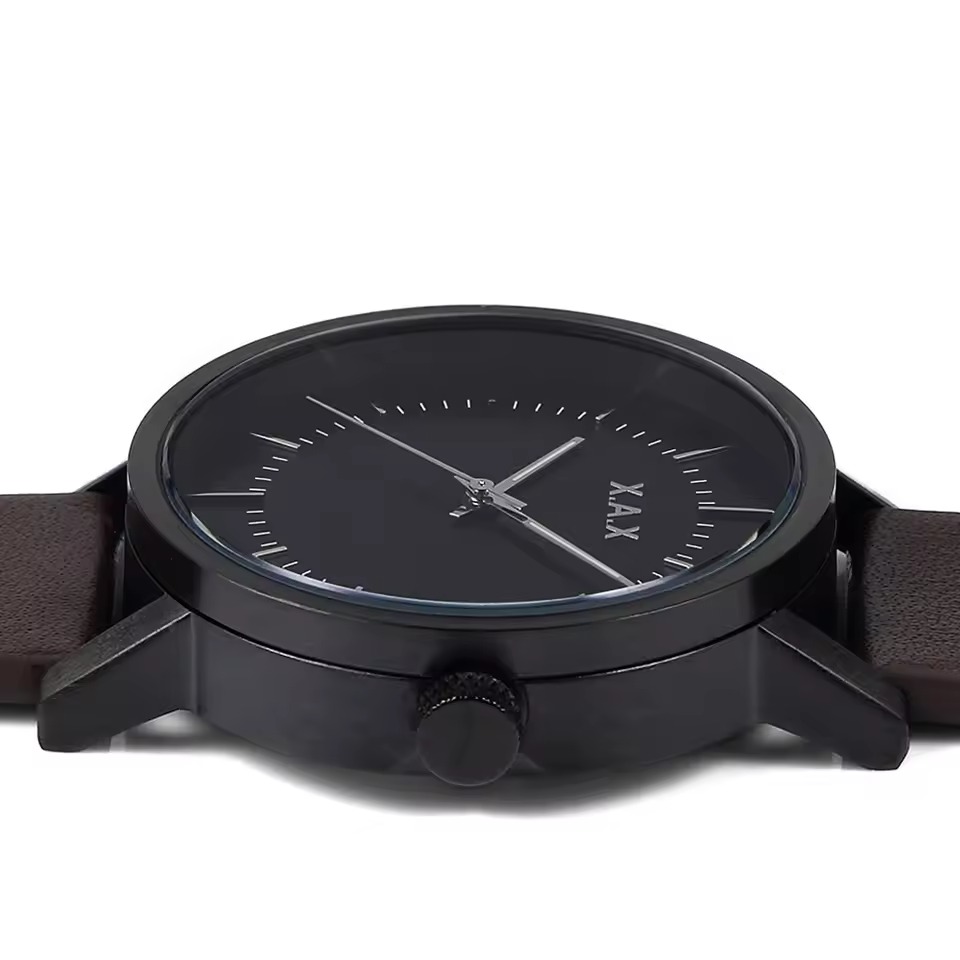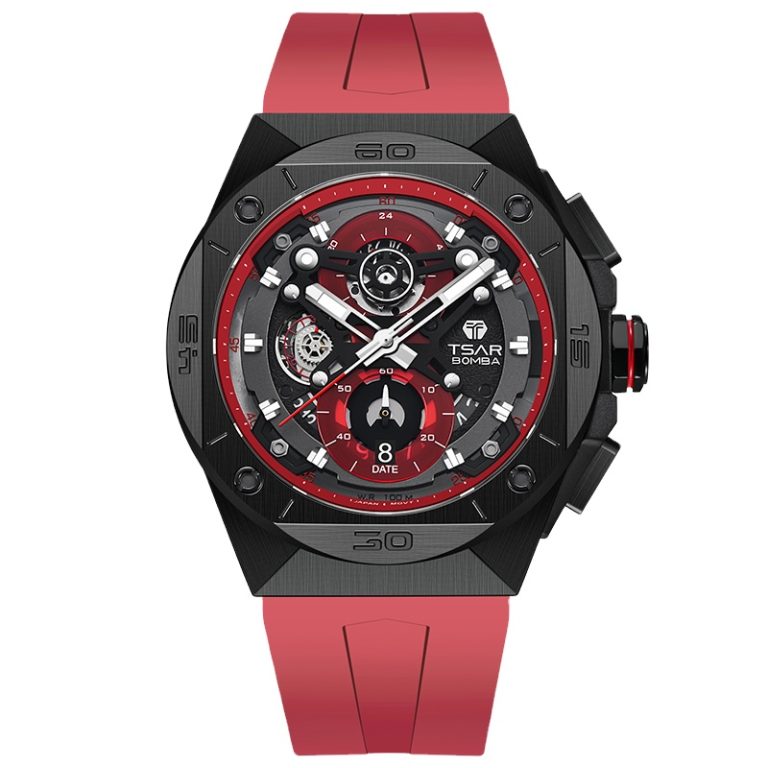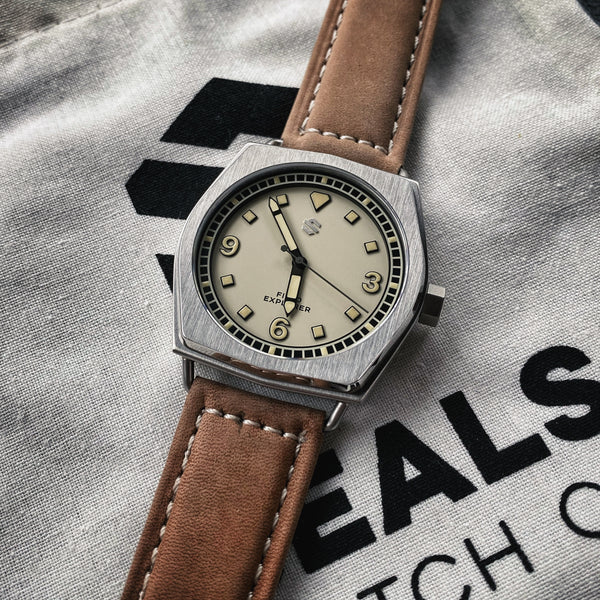Introduction
When it comes to choosing a watch, two primary types immediately come to mind: quartz vs automatic watch. Each type has its unique characteristics and appeals to different lifestyles and preferences. This article examines the differences between quartz and automatic watches, their advantages, disadvantages, and more. As we delve deeper, we aim to provide insights that will help you make an informed choice.
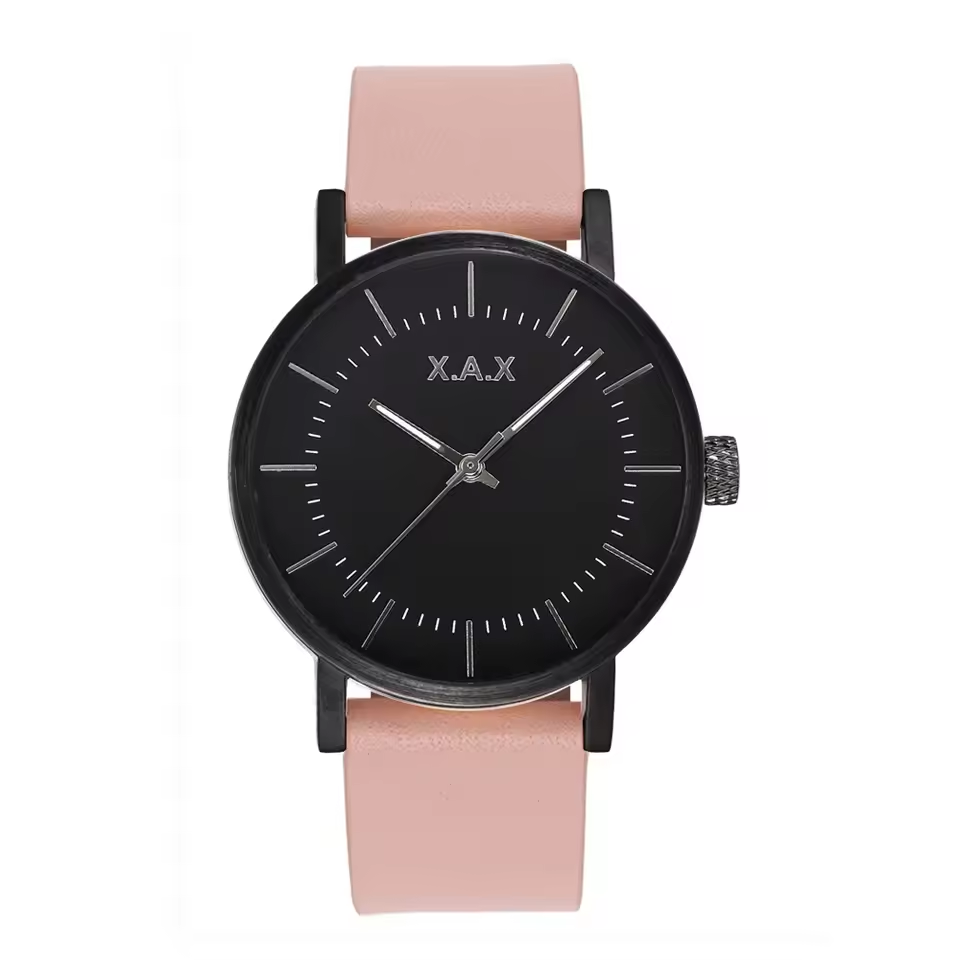
Understanding the Basics of Quartz and Automatic Watches
What is a Quartz Watch?
A quartz watch uses a quartz crystal to keep time. Inside the watch, a small electronic circuit powers a battery. The current flows through the quartz crystal and causes it to vibrate at a specific frequency. This frequency is highly accurate and helps maintain precise timekeeping. The most notable advantage of quartz watches is their accuracy. They typically lose or gain only a few seconds per month, which is significantly better than most mechanical watches.
Quartz watches come in various styles, from sleek and modern designs to classic and elegant ones. They offer a wide range of features, including digital displays, alarms, and other complications. Consumers can find quartz watches in many price ranges, making them accessible to almost everyone. Furthermore, quartz watches require little maintenance. A simple battery change every few years is often all that is needed to keep them running smoothly.
What is an Automatic Watch?
On the other hand, an automatic watch operates through mechanical movements. Instead of relying on a battery and a quartz crystal, it uses a series of gears and springs. The movement of the wearer’s wrist winds the mainspring, which powers the watch. This self-winding mechanism is one of the defining features of automatic watches.
Automatic watches combine artistry and engineering. They are crafted with intricate movements that showcase the beauty of horology. Many watch enthusiasts appreciate the craftsmanship and skill involved in creating mechanical movements. Unlike quartz watches, automatic watches do not require batteries. They rely fully on mechanical components to operate. However, they do require regular wearing or periodic winding to keep running, or they may stop.
Analyzing the Accuracy of Quartz and Automatic Watches
Why is Accuracy Important in a Watch?
Accuracy is one of the key selling points when comparing quartz and automatic watches. The accuracy of a timepiece directly affects its reliability. Having a watch that keeps time well is essential for many people. They may rely on their watch for daily functions like meetings, schedules, and personal commitments. For this reason, potential buyers often assess how accurately a watch can tell time.
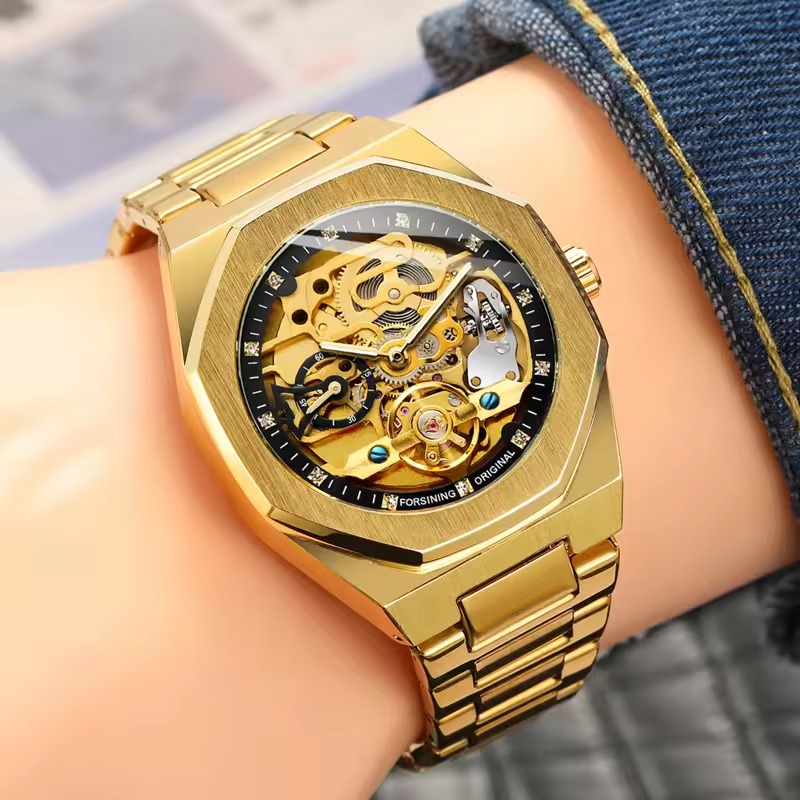
How Accurate is a Quartz Watch?
Quartz watches stand out for their superior accuracy. Generally, quartz movements boast an accuracy of ±15 seconds per month. This level of precision stems from the quartz crystal’s consistent vibrations. Users can trust that their quartz watches will maintain time accurately throughout each month. Many manufacturers even produce high-end quartz watches that can achieve even greater accuracy.
The precision of quartz watches makes them ideal for anyone who values punctuality. Athletes, business professionals, and daily commuters benefit significantly from their reliability. If you lead a busy life and need a dependable timepiece, a quartz watch may be the best option for you.
How Accurate is an Automatic Watch?
In contrast, automatic watches usually have an accuracy of ±20 to ±50 seconds a day. This variance may seem less impressive than quartz, but enthusiasts often appreciate the imperfection as a part of the watch’s character. Automatic watches are intricate pieces of art, and many owners find joy in the subtle quirks of mechanical movements.
While automatic watches may not match the accuracy of quartz counterparts, they offer a different kind of allure. Many watch enthusiasts cherish the craftsmanship involved in their make. They enjoy examining the complexities of gears and springs. Therefore, when considering accuracy, it often depends on personal preference.
Longevity: Which Watch Lasts Longer?
Durability of Quartz Watches
When it comes to longevity, quartz watches generally have an edge over automatic models. Their battery-powered designs mean fewer moving parts are under constant stress. A well-maintained quartz watch can easily last several decades. When the battery runs out, replacing it is straightforward and typically inexpensive.
Moreover, many quartz watches come with robust materials that enhance their durability. Stainless steel casings, scratch-resistant glass, and waterproof features make them reliable for everyday wear. As a result, quartz watches tend to hold up well in various conditions, from casual outings to adventurous activities.
Durability of Automatic Watches
Conversely, automatic watches require more care to maintain their longevity. Mechanical movements have more components that can wear out over time. Regular servicing is essential to ensure the intricate gears run smoothly. Typically, manufacturers recommend servicing every three to five years. While this maintenance can be an extra expense, it keeps the watch functioning effectively.
Despite their higher maintenance needs, automatic watches often last a lifetime or longer with care. These timepieces are often passed down through generations, becoming treasured family heirlooms. Their lasting appeal and craftsmanship can make them worthy investments, drawing people to their ticking allure.
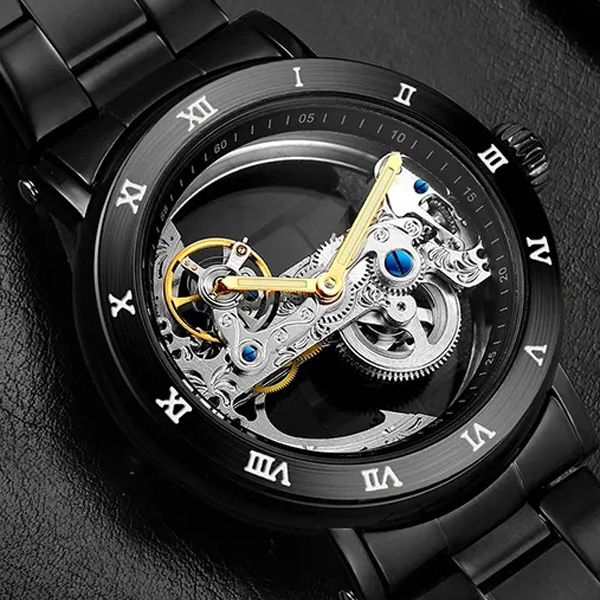
Cost Considerations for Quartz and Automatic Watches
Budgeting for Quartz Watches
The cost of a quartz watch can vary dramatically. Entry-level quartz watches can be quite affordable, often starting under $50. They are practical options for anyone looking for a reliable timepiece without breaking the bank. Mid-range quartz models offer plenty of functions and styles without overwhelming prices. Many reputable brands produce high-quality quartz watches in the $100 to $500 range.
As you move into luxury territory, quartz watches can become pricey. High-end brands may sell quartz models for thousands of dollars, especially those with unique design or craftsmanship. Despite this, quartz watches tend to offer better value for money when you consider their reliability and accuracy.
Budgeting for Automatic Watches
On the other hand, automatic watches often carry a higher price tag due to their complex mechanics. Entry-level automatic watches usually start around $200 to $300. While still an investment, they offer enthusiasts a taste of mechanical craftsmanship. Mid-range options often fall in the $500 to $2,000 range, offering a blend of quality and affordability.
When you begin looking at luxury automatic watches, the prices skyrocket. These often start at $3,000 and can easily escalate into six figures, particularly for brands known for their exquisite craftsmanship. While the upfront cost can be daunting, many watch enthusiasts consider these timepieces investments. They may appreciate in value over time, especially if they come from renowned manufacturers.
Style and Appearance: Quartz vs. Automatic Watches
Stylish Options Available with Quartz Watches
In terms of style, quartz watches offer various options. They are available in several designs, colors, and materials. The versatility of quartz watches makes them excellent choices for all occasions. You can find dressier options meant for formal occasions and casual ones for everyday wear. Many contemporary brands and traditional watchmakers produce eye-catching quartz designs, catering to diverse tastes.
Quartz watches also offer the advantage of being thinner and lighter. Because they use a battery and a simpler movement, quartz watches can be more streamlined. Many people prefer a watch that doesn’t feel bulky on the wrist, making quartz a popular choice.
Stylish Options Available with Automatic Watches
Conversely, automatic watches often exemplify artistry and craftsmanship. Many enthusiasts favor the traditional look and feel of mechanical watches. Some models showcase elaborate features, like transparent case backs that reveal the intricate movements. Others highlight intricate dials decorated with textures or patterns, making them visually stunning.
These watches often embody a classic style that can complement formal attire. While they may appear vintage or traditional, many modern interpretations cater to contemporary tastes. The craftsmanship often extends to the materials as well. Luxury brands frequently use precious metals and fine materials, enhancing the watch’s overall aesthetic. For those who seek elegance and sophistication, automatic watches can be appealing.
Maintenance: Ensuring Longevity for Both Types
Maintaining Quartz Watches
One of the advantages of quartz watches is that they require minimal maintenance. The main upkeep entails replacing the battery, which generally occurs every two to five years, depending on the type and usage of the watch. Some watches come with battery-saving features that prolong battery life, reducing how often you need replacements.
It is still essential to take care of the watch itself. Gentle cleaning with a soft cloth can prevent scratches from accumulating. Keeping the watch away from extreme temperatures can help extend its lifespan. Although quartz watches are durable, they can experience wear and tear like any accessory.
Maintaining Automatic Watches
In contrast, automatic watches require more detailed maintenance. Mechanical watches need regular servicing to keep the gears properly lubricated and functional. As mentioned, manufacturers recommend servicing automatic watches every three to five years. While this can incur significant costs, many owners consider it well worth the investment.
In addition to regular servicing, owners should take care of their automatic watches daily. To avoid issues like rust or dust buildup, storing the watch in a safe place is important. Many enthusiasts invest in watch winders, which simulate wrist movement and keep the gears moving when the watch is not worn. This can prevent the watch from stopping and requiring winding.
The Emotional Connection: Understanding the Appeal of Each Type
The Emotional Appeal of Quartz Watches
While many view quartz watches through a lens of practicality, there is still an emotional component to their appeal. They serve as reliable companions for daily life, symbolizing punctuality and dependability. For some, a quartz watch embodies a “grab-and-go” lifestyle, allowing individuals to focus on their day rather than worry about winding or maintaining a watch.
Moreover, quartz watches can have sentimental value. Many people receive them as gifts for significant occasions, like graduations or promotions. These timepieces can represent milestones and memories, making them more than just tools for telling time. Ultimately, a quartz watch may connect to moments and emotions that resonate with the owner.
The Emotional Appeal of Automatic Watches
On the other hand, the allure of automatic watches often lies in their craftsmanship. The art of horology captivates many enthusiasts who appreciate the skill involved in creating mechanical movements. Wearing an automatic watch can evoke emotions tied to tradition and artistry. Each piece tells a story through its intricate design and engineering.
Automatic watches often become cherished collectibles for enthusiasts. Many owners take pride in their collections as symbols of their passion. The history behind certain brands and models can be significant, adding further emotional depth to each watch. In essence, an automatic watch can symbolize a connection to the past, craftsmanship, and dedication to quality.
Conclusion: Which One is Right for You?
When deciding between quartz and automatic watches, it ultimately comes down to personal preference. If you prioritize accuracy, minimal maintenance, and reliability, a quartz watch may be the best option. They fit seamlessly into various lifestyles and offer a good mix of style and functionality.
On the flip side, if you appreciate mechanical craftsmanship and the emotional connection that comes with it, an automatic watch may satisfy your desire for artistry. The intricacies of an automatic timepiece can be a source of fascination for many collectors and casual wearers alike, and they often extend beyond mere practicality.
Whichever type you choose, both quartz and automatic watches have unique advantages and characteristics that can please any wearer. By understanding these differences, you can make a decision that aligns with your lifestyle, budget, and personal values. Embrace the journey and enjoy your timepiece, whatever it may be.
